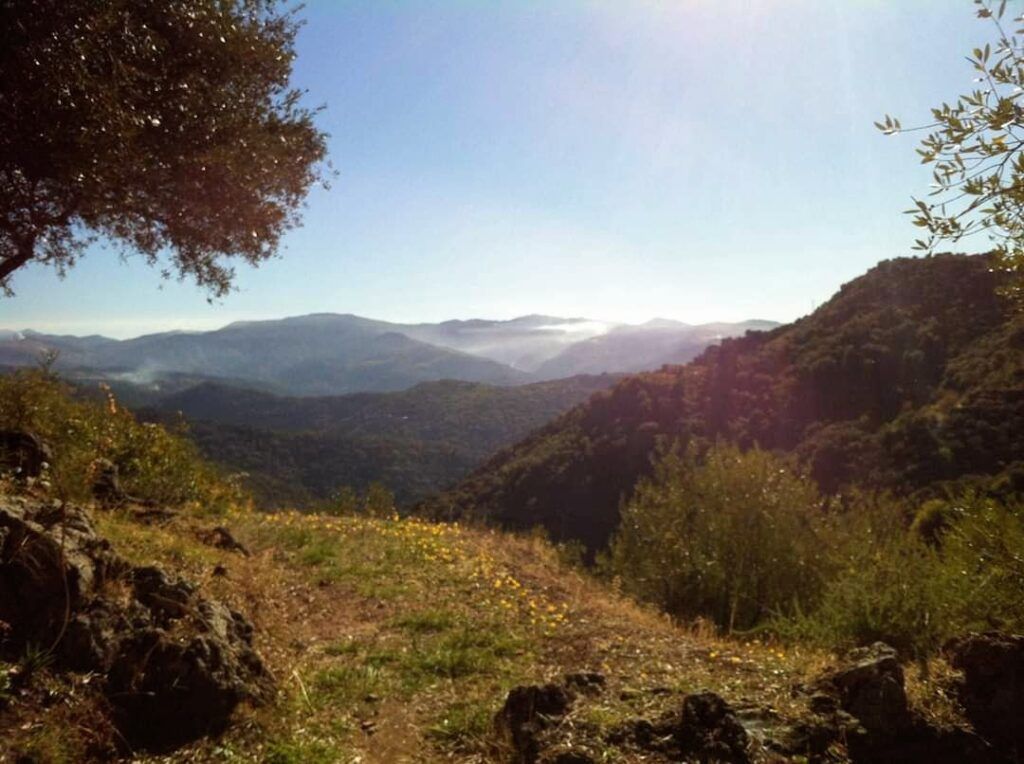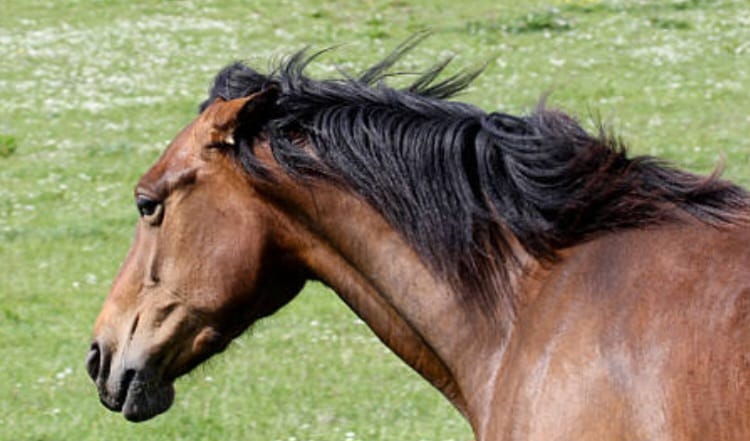The local Area
The Serrania de Ronda – a love story! I first visited this part of Spain back in 2014, when my partner and our dogs stayed in the nearby village of Benalauria for two months. I chose this area because I saw there was somewhere I could ride nearby. By the time we went home, I knew that I’d be leaving a chunk of my heart here in the Serrania de Ronda. I can truthfully say, therefore, that meeting Clare changed my life! The first time I visited her, Clare was living way out in the middle of nowhere, caring for a herd of horses that roamed free on the mountain. We rode together through the forest to the river. It was glorious – the scenery blew me away! I was on the wonderful La Mama, (sadly no longer with us but mother to Calcetines). As we returned, the rest of the herd emerged from the forest and surrounded us, accompanying us for the last few hundred metres. It was an unforgettable, magical experience. So now we come every year to stay in Jimera de Libar, which is just below Atajate. It’s another of the numerous pueblos blancos (white villages) to be found in Andalucia. Many are perched on steep hillsides and this is true of the main part of this village too but because there is a railway that runs through the valley, another settlement has grown up around the station and it is here, in Estacion de Jimera de Libar that we base ourselves when we’re here. Both Jimera and Atajate sit almost centrally in a region known as the Serrania de Ronda. It is an area of outstanding natural beauty and great geographical diversity. Popular with walkers, birdwatchers, climbers and potholers, it contains parts of both the Sierra de Grazalema and the Sierra de las Nieves. The stunning town of Ronda is the administrative headquarters of the area. The landscape of limestone escarpments, cork forests and orchards of oranges, olives, almonds and walnuts is both dramatic and serenely beautiful. The walking is wonderful, whether it’s a short stroll along the river or a hike into the mountains. Ornithologists value this area as a major migration route and some rare species can be seen. I’m not that good on birds but we have frequently seen kingfishers and cormorants on the river and the large birds of prey hanging over the valley are common enough not to warrant an exclamation anymore. Not just birds to be seen here – to my delight and astonishment, I came across a young otter in the river. It was just a few feet away and looked at me for a minute or two (long enough to confirm it definitely was an otter) before elegantly diving below the surface. I have spent many hours at dawn and dusk both in Scotland and at home on the Somerset Levels silently trying to see these beautiful elusive creatures and here I stumbled over one in the middle of the day with three noisy dogs in tow. All this beauty, peace and serenity is wonderful but this tiny village has secret gem: Bar Allioli Y Mas hosts live music events pretty much weekly. I see more live music in the couple of months we’re here than I’d manage in a year at home! High summer here is too hot for this whimpy redhead, but I come every winter and feel an ache of longing when I’ve been away too long. So this article comes with a warning: along with the amazing experience you will have with Clare and the horses, visiting here could lead to a love affair with one of the most beautiful parts of Spain. Mine will last a lifetime.


